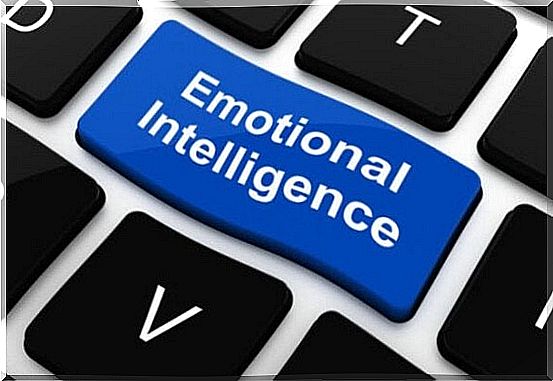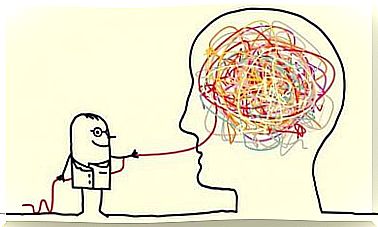Emotional Intelligence: Daily Application Is Essential

Emotional intelligence is much more than a set of approaches and strategies that serve to identify and better manage our own emotions. We are talking above all about gaining a genuine emotional awareness with which to build stronger and more respectful relationships, and it is also the key to safety, success, production and happiness.
We have all read things about it, we have taken a course or been told about Emotional Intelligence in many of the environments that form our social life: school, university, work … Much of the population connects this term almost immediately to a name, that of the popularizing psychologist, Daniel Goleman.
“The key to achieving a strong collective intelligence quotient is social harmony.”
-Daniel Goleman-
In fact, long before Goleman published his book “Emotional Intelligence” in 1995, this term had already appeared in the scientific world, notably in the writings of Michael Beldoch in 1964 and in other articles. It was about communication and emotional sensitivity, its implications and how our relationships and our personality are determined. Since then, the subject has advanced enormously, giving rise to several approaches and critiques.
There are many experts who do not see scientific rigor in this subject, who do not accept the idea that emotional intelligence is an “other” type of intelligence, but think that it is one. additional domain of it. However, the implication of this psychological, social and motivational perspective had on our daily life goes beyond the possible breaches that may or may not exist in Daniel Goleman’s theory.
Emotional intelligence improves our quality of life, our interpersonal relationships, our perception and even our professional capacities. It is, moreover, an approach which should structure most of the academic areas of schools, in order to educate more competent, confident and happy people.
The importance of applying this approach and emotional awareness is key to improving our personal and social reality. We tell you why.

1. Emotional intelligence, the key to a more fulfilling life
Since childhood, many have been guided on the path of emotional restraint. Almost without realizing it, our parents and educators recommended that we “ not cry because you are grown up now”, “If you are angry, hold back your anger” or “You take it all wrong and you go straight away ”.
Low sensitivity to one’s own emotional world or to that of others still determines many of the settings we inhabit every day. In the family environment, harassment to camouflage emotions is still very present, not to mention work, where hierarchical organizations dominated by leaders focused on immediate objectives and who create an oppressive and stressful professional climate prevail.
Doctor Goleman reminds us that emotional intelligence is present in any relationship environment, and that it has one essential goal: to provide us with a more satisfying life. Here are the keys.
Reasons emotionally intelligent people are happy
Imagine emotional intelligence as an antenna. A dual capture antenna: internal and external. Thanks to it, we learn to know ourselves better, to understand the knot of our emotions and to understand that of others:
- Thanks to emotional intelligence, we have a greater awareness of ourselves.
- We better manage our emotional worlds.
- We develop better emotional and cognitive empathy.
- We are more committed to ourselves.
- We are building greater social awareness.
“Looking into the eyes opens the door to empathy”.
-Daniel Goleman-
2. Competencies of emotional intelligence at work
The paradigm of work is changing. Realities, such as the “Gig Economy” or the prospect of more automated workstations or those carried out by machines or robots, mean that experts in this field are warning us of something very concrete: in the future, technical knowledge will not will be more valued, it will be personal skills that will be highlighted.
Hence the fact that skills, like creativity, critical thinking, engineering and emotional intelligence, are key pieces for a more automated professional world. An area in which workers need to be good at certain parts of the CV that have not been taken into account until now, such as emotional intelligence.

In the sphere of emotional intelligence applied at work, we find the following skills:
Self-awareness
- Emotional awareness: knowing how to recognize our emotions and the emotions of others at all times.
- Emotional self-assessment: knowing how to recognize our strengths and limitations.
- Self-confidence.
Self-regulation
- Self-control: the ability to maintain control in critical situations.
- Reliability: the importance of being honest and with integrity.
- Adaptability: the flexibility to accept change.
- Innovation: the importance of accepting and being a source of proposals for new ideas or approaches.
Motivation
- The orientation towards success to achieve excellence.
- The commitment to be part of the objectives of the organization.
- Initiative and anticipation.
- Optimism and persistence.

Emotional intelligence as fuel in children’s education
Emotional intelligence is a key to power through which we develop in children their ability to build more positive relationships with their families and peers. So that they develop a more balanced outlook on life, and that they achieve good academic potential at school. Finally, being able to manage and understand the emotional world means having at your fingertips an exceptional channel of learning, attention, memory, and this, to control frustration.
“The ability to express one’s own feelings is a fundamental social skill.”
-Daniel Goleman-
On the other hand, the famous doctor William Osler asserts, in the 19th century, that children make their emotions their first language. This is how they understand the world, communicate, ask, express themselves, interact and explore. This is how they begin to develop their consciousness.
We must therefore be their guides, their mediators and their translators in these emotional labyrinths that quickly drive them into vulnerability or frustration, which they can sometimes drag into adulthood.

Emotional intelligence provides us with the basic and structural keys that must be part of this daily substrate where the child evolves in his daily life. These are seeds of power and well-being that we should sow in their minds and hearts:
- Children must learn early on to recognize and sort out all of their emotions. Label them and give them a name.
- As a little one grows and matures, he must acquire skills to manage and control his emotions.
- Another emotional strategy is to be able to channel your emotions towards a one-off goal, towards a daily motivation that allows you to achieve your goals and desires.
- The importance of recognizing the feelings of others and picking up their verbal and non-verbal cues is key in emotional intelligence.
Finally, here is an essential strategy in the education of children. It is necessary to stimulate in them the good management of interactions with others, where assertiveness and social skills to negotiate and resolve conflicts will undoubtedly offer them excellent strengths in their daily lives.
To conclude, as we have seen, the field of emotional intelligence links, nourishes and revitalizes every area of our life. Let us make it our fuel, our wind thanks to which we push the sails of our life on these complex and changing oceans.
Also read:
-Daniel Goleman (2003) “Emotional Intelligence”
-Daniel Goleman (2002) “The new leaders: transforming the art of leadership” . Nueva York: Warner Books








